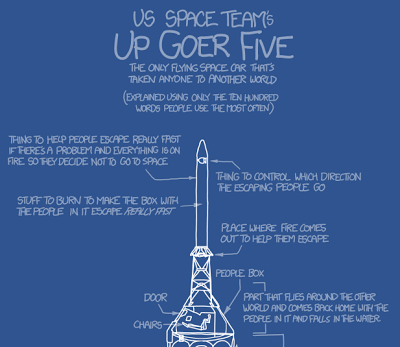CodeClub Session 1 - what a blast!

CodeClub materials prepared for Session 1 I delivered my first session of CodeClub yesterday at St. Bernadette's Catholic Primary School in Monkston Park. We took a while to get started properly while some technical issues with laptops not being fully charged or user accounts not working were getting sorted out. We used the time to get everyone signed up to the club with a nice name badge. There are 15 children in total (8 boys, 7 girls) and a few of them had done some little bits of programming before (e.g., scripting animations and games similar to CargoBot). I didn't hand out the worksheets right at the beginning because I wanted to do some step-by-step walkthroughs to get the kids familiar with the Scratch environment. However, it was apparent that the children were really excited about getting to program their own game and impatient to get started. So once they'd figured out the basics of putting blocks together, we handed out the worksheets and got stuck
